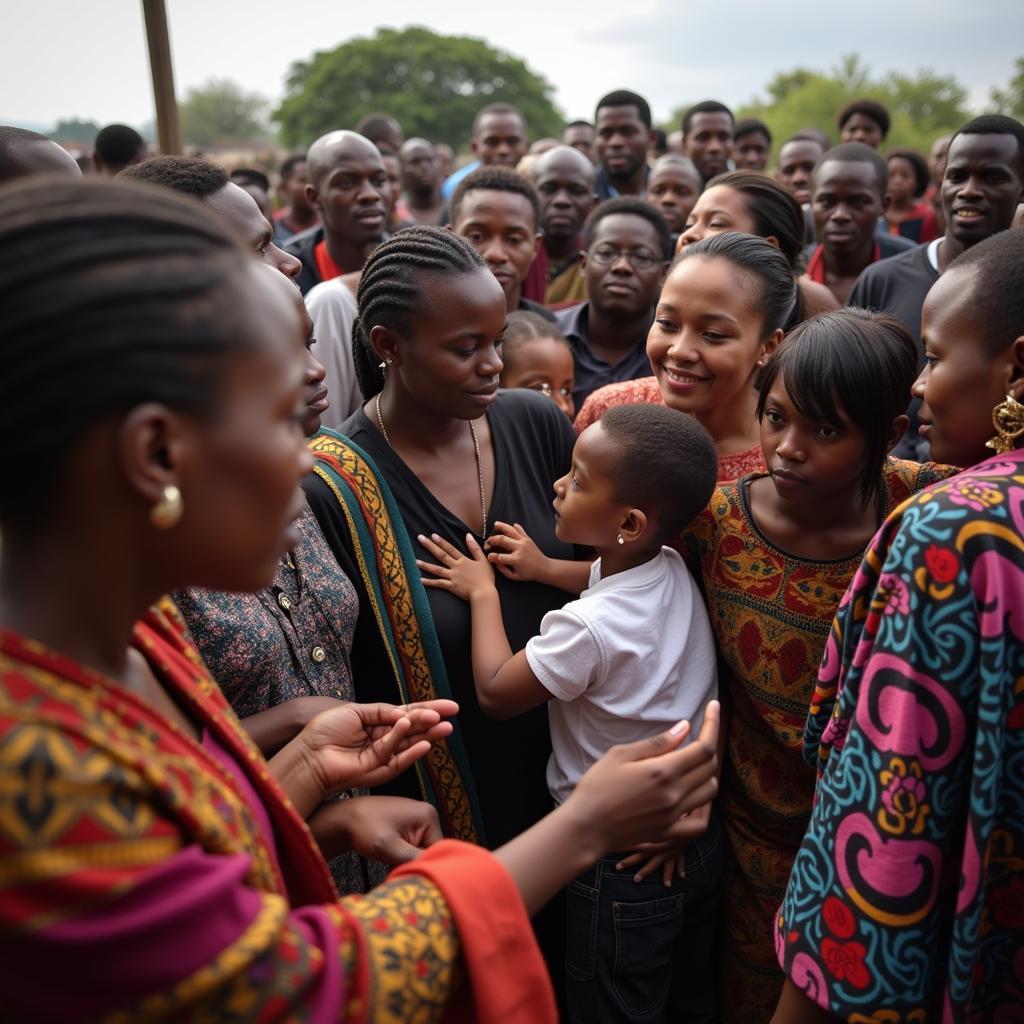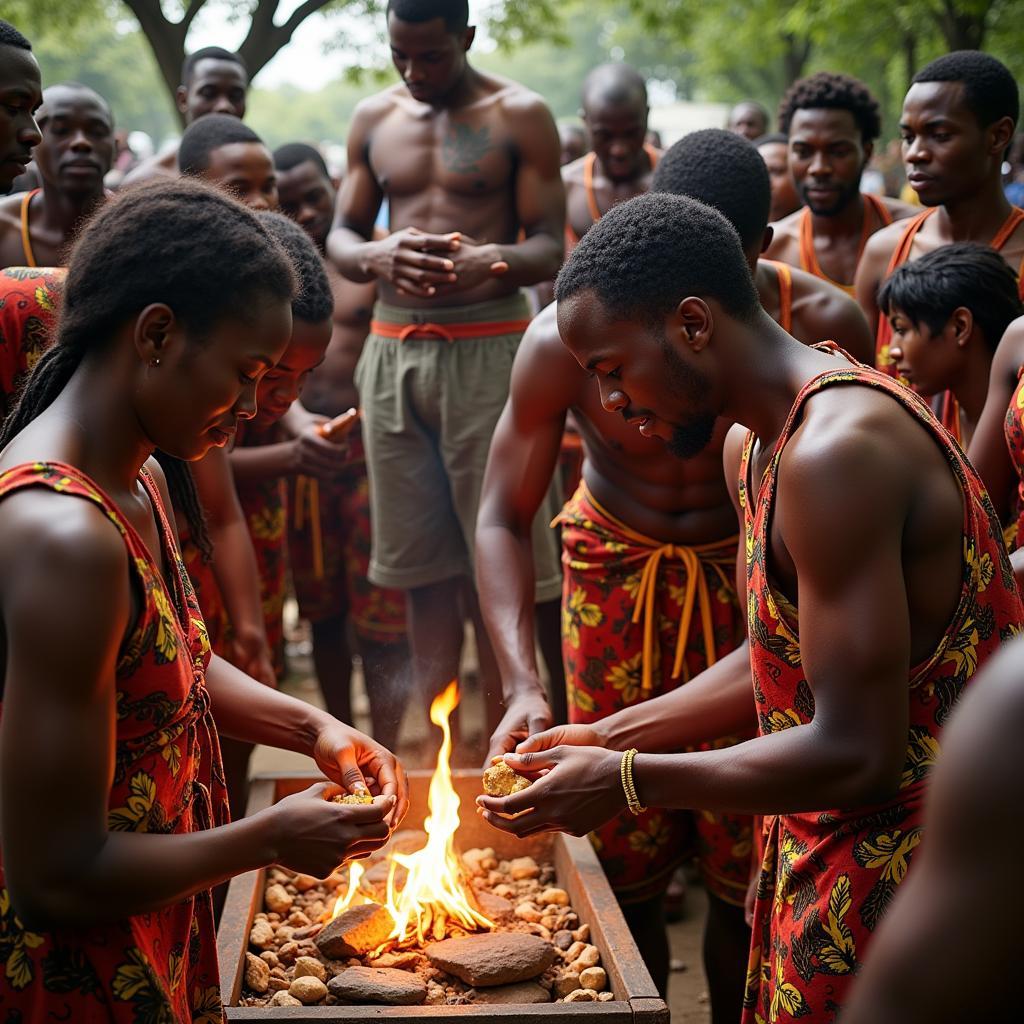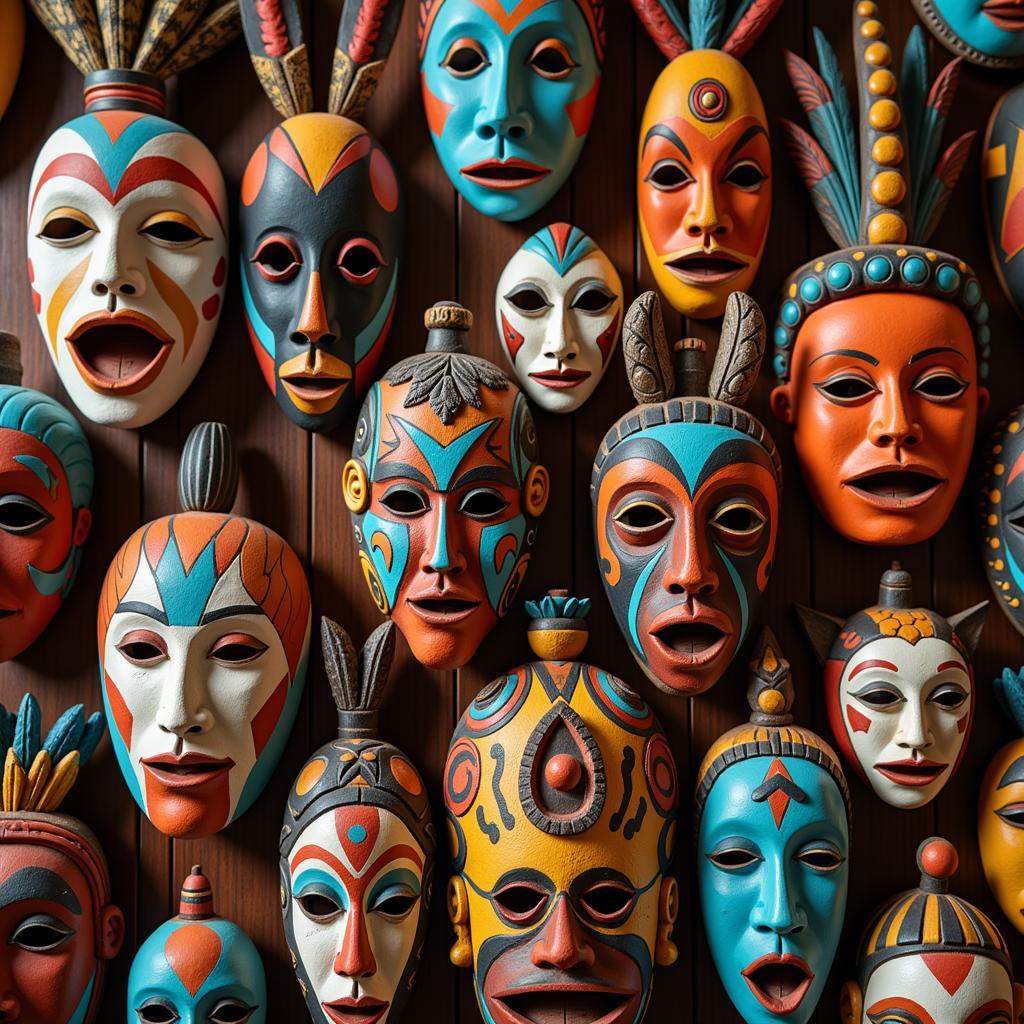Unveiling the Rich Tapestry of African Funerals
African Funerals are more than just somber occasions of mourning; they are vibrant celebrations of life, rich in tradition, symbolism, and community spirit. Across the vast continent, death is seen as a transition, a journey to the ancestral realm, and funerals are a way to honor the departed and guide their spirit into the afterlife.
A Celebration of Life and Legacy
While grief is a significant aspect, African funeral ceremonies are often filled with music, dancing, and storytelling, reflecting the belief that the deceased should be sent off with joy. The festivities serve as a reminder of the individual’s impact on the community and their lasting legacy.
Diverse Customs and Traditions
With over 50 countries and countless ethnic groups, Africa boasts an incredible diversity of funeral customs. In some cultures, elaborate costumes and masks are donned, while others feature specific rituals like pouring libations or sacrificing animals. The deceased’s social standing and achievements often dictate the scale and grandeur of the funeral.
The Significance of Community
Across many African cultures, community plays a vital role in funeral rites. Family members, friends, and neighbors come together to support the bereaved family, offering condolences, assisting with preparations, and providing emotional support. This communal approach emphasizes the interconnectedness of life and the importance of shared experiences.
 Mourners Gathering at an African Funeral
Mourners Gathering at an African Funeral
Music as a Conduit to the Afterlife
Music is an integral part of African funeral traditions. From mournful melodies to upbeat rhythms, music serves as a conduit between the living and the dead. Certain instruments, like the African kakoro trumpet trombone, hold particular significance, believed to guide the deceased’s spirit to the afterlife.
“Music acts as a bridge,” explains Dr. Abena Osei, an ethnomusicologist specializing in West African funeral traditions. “It expresses the raw emotions of grief and loss, but also celebrates the life lived and offers hope for a peaceful transition.”
The Power of Dance and Song
African funeral dance is not merely a form of entertainment but a powerful expression of grief, celebration, and spiritual connection. Specific dances might honor the deceased’s achievements, while others call upon ancestral spirits for guidance and protection. The rhythmic movements and heartfelt songs create a collective energy, uniting the community in shared mourning and remembrance.
Symbolism and Rituals: Deciphering the Sacred
From the attire worn to the objects displayed, every aspect of an African funeral is imbued with symbolism. Colors often hold specific meanings: white signifying purity, black representing mourning, and red symbolizing the life force. Ritualistic practices, passed down through generations, aim to appease the spirits and ensure a smooth transition for the deceased.
Honoring Ancestors and Seeking Guidance
Ancestral veneration is a cornerstone of many African cultures, and funerals provide an opportunity to connect with and seek guidance from those who came before. Offerings of food and drink might be made, and elders might share stories and wisdom from the deceased, keeping their memory alive.
 Rituals at an African Funeral
Rituals at an African Funeral
Evolving Traditions in a Modern World
While rooted in ancient customs, African funeral practices are not static. As the continent modernizes, traditions are adapting to contemporary realities. The influence of globalization and technology is evident, but the core values of community, respect for ancestors, and the celebration of life remain steadfast.
Conclusion
African funerals offer a unique window into the continent’s rich cultural tapestry. They are poignant reminders of the circle of life, the importance of community, and the enduring power of tradition. By embracing the vibrant rituals and profound symbolism, we gain a deeper understanding of the African worldview and the interconnectedness of life and death.
FAQ
1. How long do African funerals typically last?
The duration of an African funeral can vary widely depending on the cultural group and the social status of the deceased. Some funerals might last for a few days, while others can extend for a week or more.
2. Is it appropriate for non-Africans to attend an African funeral?
Generally, it is considered respectful to seek permission from the family before attending an African funeral. If invited, it’s essential to dress modestly and observe the customs and traditions of the community.
3. What is the significance of wearing African head scarfs at funerals?
Headscarves often hold cultural and spiritual significance at African funerals. They might symbolize respect, mourning, or a connection to ancestors.
4. Are there specific gifts that are appropriate to bring to an African funeral?
In many African cultures, it is customary to offer monetary contributions to the bereaved family to help cover funeral expenses. This gesture of support is often more appreciated than material gifts.
5. What are some common musical instruments used in African funeral music?
African funeral music encompasses a diverse range of instruments, including drums, trumpets, horns, flutes, and stringed instruments. The specific instruments used vary depending on the region and cultural group. For a broader understanding of the instruments used, you can explore a list of African instruments and their names.
6. Are there specific taboos to be aware of when attending an African funeral?
It’s crucial to be mindful of cultural sensitivities. Avoid excessive laughter or loud conversations, and refrain from taking photos or videos without permission. It’s always wise to observe and follow the lead of the local community.
7. How are African funeral traditions evolving in modern times?
With globalization and technological advancements, some African funerals incorporate contemporary elements. However, the core values of community support, respect for ancestors, and the celebration of life remain central to these ceremonies.
Do you have more questions about African funerals or other aspects of African culture? Explore our website for more insights! If you need assistance planning a culturally sensitive event or have specific inquiries, don’t hesitate to contact us. Reach out to our 24/7 support team at +255768904061, email us at [email protected], or visit our office in Mbarali DC Mawindi, Kangaga, Tanzania. We’re here to help you navigate the richness and complexities of African traditions.

